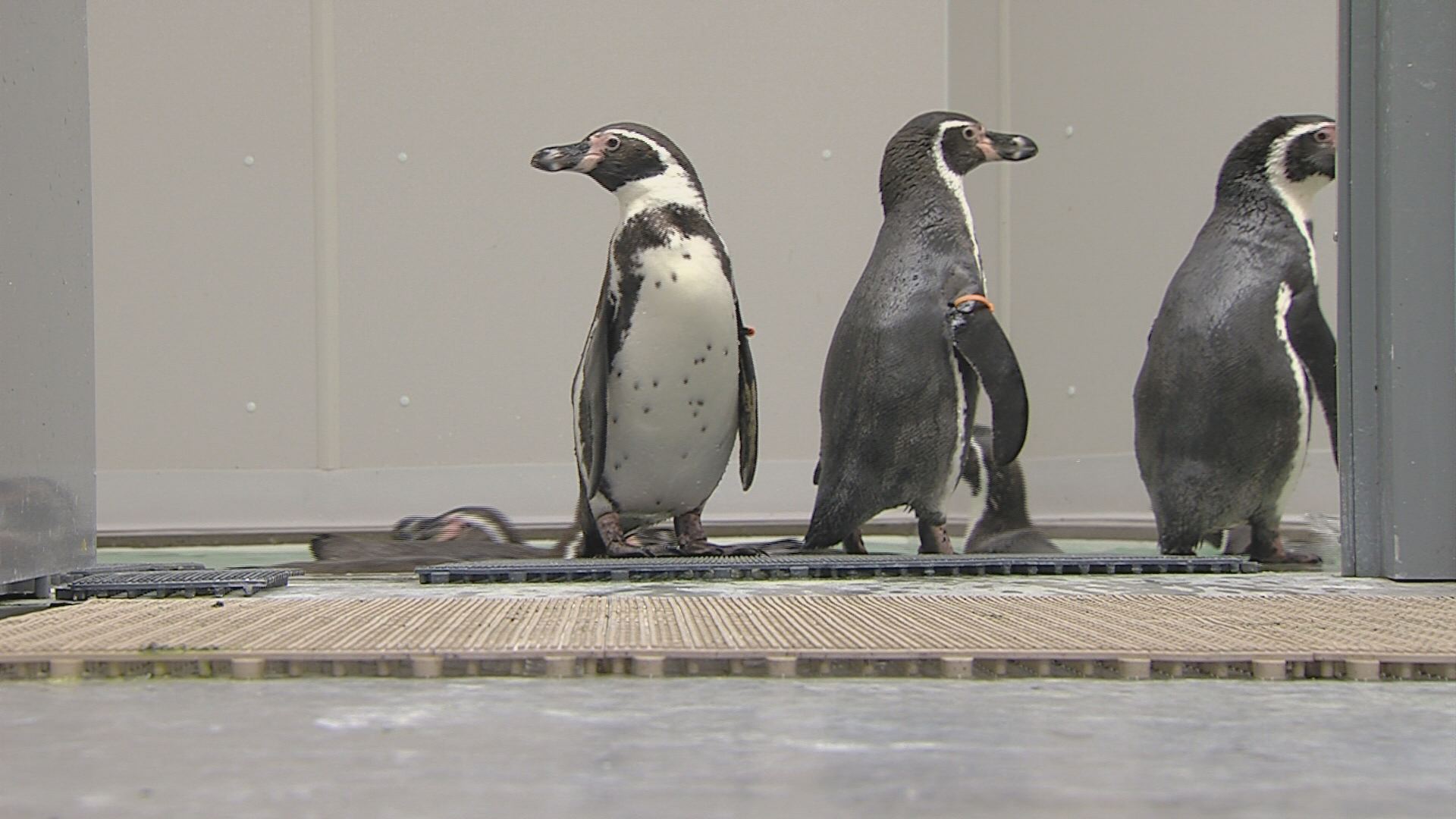skip to main |
skip to sidebar
 The
penguins at the Scovill Zoo are just like most people. They're spending
this winter indoors. The humboldt penguins arrived in Decatur late last
year and Thursday WAND checked back in with the birds to see how
they're battling their first winter in Central Illinois. "I've been having conversations with
people and they're like, 'Oh, I bet your penguins are loving this
weather,' described Mary Barnes Penguin Keeper at the zoo. "And I'm
like, 'Well, not really.'"
The
penguins at the Scovill Zoo are just like most people. They're spending
this winter indoors. The humboldt penguins arrived in Decatur late last
year and Thursday WAND checked back in with the birds to see how
they're battling their first winter in Central Illinois. "I've been having conversations with
people and they're like, 'Oh, I bet your penguins are loving this
weather,' described Mary Barnes Penguin Keeper at the zoo. "And I'm
like, 'Well, not really.'"
That's because the penguins are from warmer climates like Peru and Chile. "There's a colder current that runs
through the water so they're used to cold water but the temperatures
we're experiencing now are just a bit colder than they're used to,"
Barnes explained. WAND's Elise Menaker even asked the birds herself, "How do you guys feel about the cold?... You strongly dislike it... Me, too."
Wandtv.com, NewsCenter17, StormCenter17, Central Illinois News-
Barnes said some of the birds might not even know what snow is. "They're all inside," she said. "We
tried to get them out into the snow a little bit. They all ran back
inside. They hate snow," Barnes said with a laugh. But the wolves love it. "They have the nice winter fur that
helps keep them warm," explained Zoo Keeper Heather Purdeu. "A lot of
times in the winter, during the day, a lot of times you'll just see them
kind of rolled up on the snow. They don't seem to be bothered by it at
all."
And believe it or not, neither are the camels. "They have the thick winter fur,"
Purdeu said. "They have kind of the larger feet that helps in the wild
walk through the sand but it kind of helps them with the snow, too." But it's the penguins that are more like people. "I think they're ready for spring," Barnes said. "They're ready to be outside in their pool." But until then, perhaps the best place this winter is inside.
The mammals that may be having the
hardest time dealing with the cold, the humans, the zoo keepers. They
said they have to take short visits outside that are just long enough to
change water and check on the animals. They've also been taking extra
steps like insulating outdoor areas and providing heat lamps for the
animals so they don't get too cold.
source

 The
penguins at the Scovill Zoo are just like most people. They're spending
this winter indoors. The humboldt penguins arrived in Decatur late last
year and Thursday WAND checked back in with the birds to see how
they're battling their first winter in Central Illinois. "I've been having conversations with
people and they're like, 'Oh, I bet your penguins are loving this
weather,' described Mary Barnes Penguin Keeper at the zoo. "And I'm
like, 'Well, not really.'"
The
penguins at the Scovill Zoo are just like most people. They're spending
this winter indoors. The humboldt penguins arrived in Decatur late last
year and Thursday WAND checked back in with the birds to see how
they're battling their first winter in Central Illinois. "I've been having conversations with
people and they're like, 'Oh, I bet your penguins are loving this
weather,' described Mary Barnes Penguin Keeper at the zoo. "And I'm
like, 'Well, not really.'"

















No comments:
Post a Comment